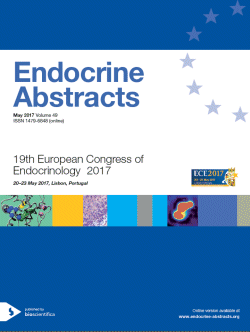Searchable abstracts of presentations at key conferences in endocrinology

19th European Congress of Endocrinology
Lisbon,
Portugal
20 May 2017 - 23 May 2017
20-23 May 2017, Lisbon, Portugal
Further information



